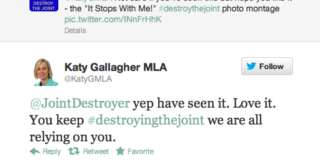
Introduction
The Gaza crisis, which intensified following Hamas’s attack on October 7, 2023 and Israel’s subsequent military operations, represents a humanitarian and moral catastrophe deeply rooted in over a century of conflict. The current statistics are staggering; over 45,000 Palestinians have died, 100,000 are injured and 1.9 million are displaced, contrasted with approximately 1,400 Israeli fatalities. This humanitarian disaster is a manifestation of a historical trajectory marked by displacement, occupation and violence, beginning with the 1917 Balfour Declaration and culminating in the current crisis. The stark power asymmetry, violations of international humanitarian law and mutual moral failures challenge our shared humanity.
This paper argues for urgent humanitarian intervention, a ceasefire that addresses systemic issues such as occupation and militancy and sustained dialogue to foster mutual respect. Jewish ethical principles – pikuach nefesh (the imperative to save a life), tzedek (justice), chesed (loving-kindness), shalom (peace) and kavod (human dignity) – are drawn from Talmudic texts, the Torah and the works of Maimonides. Similarly, Islamic ethics – rahma (mercy), adl (justice), ihsan (excellence in conduct), hurma (sanctity of life) and salaam (peace) – are derived from the Quran, Hadith and scholars like Al-Ghazali and Ibn Taymiyya. The paper seeks to weave an extensive historical context while comparing these ethical frameworks, transforming Gaza’s tragedy into a catalyst for ethical renewal and reconciliation, honouring the shared values of compassion, justice and peace across traditions.
The Humanitarian Crisis and Ethical Urgency
The Gaza crisis is deeply intertwined with a complex historical narrative. The Balfour Declaration of 1917, which endorsed a Jewish homeland in Palestine under British Mandate, ignited tensions between Jewish immigrants and Arab residents. The 1936–1939 Arab Revolt protested British policies and foreshadowed future conflict. The UN Partition Plan of 1947 proposed separate Jewish and Arab states, but its rejection by Arab leaders led to the 1948 Arab-Israeli War. The establishment of Israel resulted in the displacement of approximately 700,000 Palestinians, an event referred to as the Nakba, with around 200,000 fleeing to Gaza, which was then under Egyptian control. The 1967 Six-Day War saw Israel capture Gaza, initiating military occupation and the establishment of Jewish settlements.
The situation further deteriorated with the First Intifada in 1987 and the Oslo Accords in 1993, which, despite initial hopes for Palestinian autonomy, faltered due to mutual distrust and ongoing settlement expansion. Although Israel withdrew 8,000 settlers from Gaza in 2005, it retained control over the territory’s borders, airspace and sea. The 2006 electoral victory of Hamas and its subsequent takeover of Gaza in 2007 led to a blockade that has crippled the region’s economy. By 2023, approximately 80% of Gaza’s 2.3 million residents relied on humanitarian aid, with 45% unemployment and 60% youth joblessness (Human Rights Watch). The October 7 Hamas attack, which resulted in the deaths of 1,200 Israelis and the taking of 250 hostages, triggered a severe Israeli military response, resulting in significant Palestinian casualties and widespread displacement (UNOCHA, 2025).
The humanitarian conditions in Gaza are dire. The blockade restricts essential supplies, leading to severe shortages of food, water, electricity and medical care. UNICEF reports that 50% of children in Gaza face acute malnutrition and 70% of homes have been destroyed (UNICEF, 2024). Human Rights Watch has cited these policies as potential war crimes under the Geneva Conventions’ Article 33, which prohibits collective punishment and Article 8 of the Rome Statute, which addresses the use of starvation as a weapon.
Talmudic ethics emphasise the principle of pikuach nefesh, which prioritises saving lives above almost all other commandments. As stated in Sanhedrin 74a, this obligation extends even to non-Jews, reflecting a universal ethic of compassion. The blockade’s starvation policies and medical shortages endanger countless civilians, violating the Talmudic imperative. Furthermore, kavod (human dignity) is a critical value in Jewish ethics; Bava Kamma 8a equates causing shame with shedding blood, highlighting the moral failures inherent in denying basic needs such as clean water, which 90% of Gazans lack (WHO, 2024). The Torah’s command to “love your neighbour as yourself” (Leviticus 19:18) and Maimonides’ directive to provide charity to all in distress (Mishneh Torah, Laws of Kings 10:12) underscore the ethical failures associated with dehumanising policies.
Islamic ethics place significant emphasis on hurma, the sanctity of life. The Quran states in 5:32, “Whoever kills a soul…it is as if he had slain mankind entirely,” equating the taking of one life with the destruction of all humanity. Rahma (mercy) is a core divine attribute (Quran 7:156) that mandates alleviating suffering, as demonstrated by the Prophet Muhammad’s teachings on caring for the needy (Sahih Muslim 2715). Al-Ghazali’s Ihya Ulum al-Din stresses ihsan, which includes ensuring civilian welfare even amidst conflict. The blockade’s deprivation – limiting food to 1,200 calories per person daily in certain periods (UN, 2023) – violates both hurma and rahma, breaching the protections afforded to non-combatants in Islamic law, as outlined in the Prophet’s rules of war (Muwatta Malik 21.3.10).
Both ethical traditions converge on the sanctity of life and the imperative of compassion. Talmudic ethics rely on rigorous legal reasoning, as seen in Sanhedrin’s case-by-case debates, while Islamic ethics prioritise divine mercy and the intent behind actions (niyya). Humanism unifies these perspectives, condemning disproportionate harm and valuing equal dignity. The historical suffering of Gaza – from the Nakba to the blockade’s economic strangulation – amplifies the urgency for humanitarian aid and accountability for legal violations, restoring kavod and ihsan to a population enduring decades of hardship.
Israel’s Security Narrative and Ethical Limits
Israel’s military actions are often framed as necessary responses to existential threats, shaped by a history of conflict and violence. The 1948 war, the 1956 Suez Crisis, the 1967 Six-Day War and the 1973 Yom Kippur War have entrenched Israel’s security concerns, as neighbouring states and Palestinian groups have historically challenged its existence. The First and Second Intifadas, as well as the rise of Hamas, which was founded in 1987 and designated a terrorist organisation by the US, EU and others, have further complicated the security landscape.
Since 2007, Hamas has launched over 20,000 rockets at Israeli civilian areas, with 10,000 fired since October 2023, resulting in civilian casualties and hostage situations. Hamas’s tactic of embedding military assets in civilian infrastructure – such as tunnels under hospitals and rocket launchers in schools – complicates Israel’s military response, as precision airstrikes risk collateral damage. Israel’s right to self-defence, enshrined in Article 51 of the UN Charter, is framed as a moral imperative to protect its 9 million citizens, including 2 million Arab Israelis who also face Hamas’s indiscriminate attacks.
Talmudic ethics demand a balance of justice and compassion. Tzedek (justice) is central to Jewish law; Deuteronomy 16:20 commands, “Justice, justice shall you pursue,” and Sanhedrin 32b interprets this as requiring fairness even in conflict. Chesed (loving-kindness) urges compassion, as Rabbi Hillel taught: “What is hateful to you, do not do to others” (Shabbat 31a). The occupation since 1967, with approximately 700,000 settlers in the West Bank and East Jerusalem by 2023 (UN) and the blockade of Gaza have created dire conditions – 45% unemployment, 60% youth joblessness and 80% poverty (Human Rights Watch) – which fuel militancy and despair. The principle of din rodef (Bava Metzia 62a), which permits the pursuit of a direct threat, supports self-defence but prohibits excessive harm to innocents, thereby questioning the blockade’s collective impact on 2.3 million Gazans. Maimonides advocates proportionality in conflict, emphasising mercy toward non-combatants (Mishneh Torah, Laws of Kings 10:12), challenging policies that punish entire populations.
Islamic ethics similarly balance self-defence with restraint. Adl (justice) requires proportionality; the Quran instructs in 2:190, “Fight…those who fight you, but do not transgress limits.” Rahma (mercy) tempers conflict, as the Prophet warned against excessive violence: “Do not be extreme in killing” (Sahih Bukhari 4.52.257). Ibn Taymiyya’s Fatawa permits defensive jihad but strictly prohibits harming non-combatants, aligning with the Prophet’s prohibition on targeting civilians (Muwatta Malik 21.3.10). The occupation’s systemic oppression and the blockade’s broad punishment violate adl and ihsan (excellence in conduct), as they indiscriminately harm civilians and undermine the ethical imperative to protect the innocent.
Both tzedek and adl demand restrained self-defence, while chesed and rahma urge compassion. Talmudic ethics emphasise communal legal boundaries, as seen in Bava Metzia’s nuanced rulings, whereas Islamic ethics highlight divine accountability and the moral intent of actions. Humanism critiques disproportionate harm, aligning with both traditions’ call for ethical conduct. Israel’s security concerns, rooted in a history of wars and attacks, are legitimate; however, the occupation and blockade’s role in perpetuating cycles of violence must be addressed to uphold kavod (dignity) and ihsan, ensuring that defensive measures do not devolve into collective punishment.
Moral Blind Spots in the Palestinian Narrative
Advocates for Palestinian rights often sidestep Hamas’s ethical and legal violations, a pattern evident since its founding during the 1987 First Intifada. Hamas’s electoral victory in 2006 and its violent takeover of Gaza from Fatah in 2007 escalated tensions, leading to the blockade. Since 2023, Hamas has fired 10,000 rockets targeting Israeli civilian areas and has been accused of using human shields, placing weapons in densely populated neighbourhoods, schools and mosques. These actions breach Article 51(7) of the Geneva Conventions, which prohibits using civilians to shield military targets, endangering both Gazans and Israelis and alienating potential allies. By excusing such tactics, advocates risk portraying Palestinians as passive victims, undermining their agency and the complexity of their struggle for self-determination.
Talmudic ethics require accountability rooted in justice. Tzedek is uncompromising; Bava Kamma 93a holds individuals liable for harm caused, even in pursuit of righteous causes, emphasising that ethical ends do not justify unethical means. Chesed (loving-kindness) demands compassion but insists on truth, as Sanhedrin 6b calls for honest reckoning in resolving disputes. Kavod (human dignity) respects the suffering of Palestinians – 80% of whom live below the poverty line – but condemns actions that harm civilians, aligning with Leviticus 19:16’s prohibition against standing idly by bloodshed. Rabbi Akiva’s teaching that human dignity is universal and divinely bestowed (Tosefta, Shevi’it 8:4) rejects tactics that violate the sanctity of any life, whether Palestinian or Israeli.
Islamic ethics echo this call for accountability. Adl (justice) mandates fairness; Quran 4:135 urges, “Stand firmly for justice, as witnesses to Allah, even against yourselves.” Ihsan (excellence in conduct), per Quran 16:90, requires ethical behaviour in all circumstances and the Prophet explicitly prohibited targeting non-combatants, stating, “Do not kill women, children, or the elderly” (Muwatta Malik 21.3.10). Al-Ghazali’s Ihya Ulum al-Din emphasises niyya (intent), arguing that noble goals cannot justify immoral actions. Hurma (sanctity of life) protects all humans, condemning Hamas’s rocket attacks and the use of human shields as violations of Islamic law that endanger innocent lives.
Both tzedek and adl demand accountability for actions, while kavod and hurma uphold the sanctity of civilian lives. Talmudic ethics focus on communal responsibility, ensuring justice within the collective, whereas Islamic ethics emphasise individual moral intent and divine judgment. Humanism aligns with both, unequivocally condemning attacks on civilians, regardless of the perpetrator. The Palestinian struggle, rooted in historical grievances from the Nakba to the ongoing occupation, is legitimate, but ethical advocacy must condemn Hamas’s violations to maintain moral credibility and uphold chesed and ihsan, ensuring that the pursuit of justice does not compromise the sanctity of human life.
Universal Failures and an Ethical Path Forward
The Gaza crisis exposes persistent global failures, reflecting a history of diplomatic inaction and selective engagement. The 1947 UN Partition Plan sparked violence and Resolution 194 (1948), which called for the return of Palestinian refugees, remains unimplemented, with 5.9 million registered refugees by 2025 (UNRWA). The Camp David Accords of 1978 and the Oslo Accords of 1993 offered hope but failed to resolve core issues such as borders and the right of return for refugees. Since 2023, over 20 UN Security Council resolutions addressing Gaza have been vetoed or stalled, primarily by the US and Russia, reflecting geopolitical divisions. Western nations provide Israel with $3.8 billion in annual military aid (US State Department, 2024), while UNRWA’s budget struggles to support Palestinian refugees across Jordan, Lebanon and Syria. Some nations in the Global South, citing anti-colonial solidarity, excuse Hamas’s violence, further polarising discourse. This selective outrage undermines shalom (peace), which Gittin 59b deems the highest value in Jewish tradition and salaam (peace), a divine attribute in Islam (Quran 59:23).
Talmudic ethics offer a framework for resolution centred on peace and the preservation of life. Shalom fosters communal harmony, as stated in Gittin 59b, “Great is peace, for all blessings are contained within it.” Pikuach nefesh (Yoma 84b) priorities saving lives, overriding other commandments and Maimonides permits diplomatic compromise to preserve life (Mishneh Torah, Laws of Kings 6:1). Sanhedrin 99b praises peace negotiations as a divine act, exemplified by the Oslo Accords, which, despite limitations, reduced violence in the 1990s. Kavod (human dignity) supports dialogue, as Rabbi Jonathan Sacks, citing Avot 1:12, urged pursuing peace through empathy. Grassroots initiatives like the Parents Circle-Families Forum, which unites bereaved Israeli and Palestinian families, demonstrate the potential of dialogue to build trust and humanise the other.
Islamic ethics similarly prioritise peace and compassion. Salaam is a core divine attribute (Quran 59:23) and rahma (mercy) mandates alleviating suffering (Quran 17:110). The Prophet’s Treaty of Hudaybiyyah (628 CE), a 10-year truce with the Quraysh, serves as a model for diplomacy (Sahih Bukhari 3.49.861), achieving peace through strategic compromise. Ihsan (excellence) encourages trust-building, as Al-Ghazali’s Ihya Ulum al-Din emphasises fostering goodwill even in adversity. Adl (justice) demands accountability from global actors (Quran 4:135), condemning inaction that perpetuates suffering. Initiatives such as Islamic Relief’s delivery of 10,000 tons of aid to Gaza since 2023 exemplify rahma in action, addressing immediate needs despite blockade restrictions.
Both shalom and salaam elevate peace as a moral imperative, though Talmudic ethics focus on communal harmony through legal and social structures, while Islamic ethics emphasise submission to divine will and mercy. Pikuach nefesh and rahma converge on prioritising life, while kavod and ihsan support dignity through dialogue. Humanism reinforces these values, advocating reconciliation and equal dignity for all parties. To address the Gaza crisis, three historically informed steps are proposed:
1. Humanitarian Aid: Lift the blockade to deliver food, water, medical supplies and rebuilding materials, aligning with pikuach nefesh, rahma and calls from the International Committee of the Red Cross. Egypt’s Rafah crossing, which facilitated 500 aid trucks daily during the 2014 ceasefire, could be reopened with international oversight, as proposed in UN Resolution 2720 (2023). Rebuilding Gaza’s 70% destroyed infrastructure, including 350,000 homes, requires an estimated $20 billion, necessitating global funding commitments.
2. Ceasefire: Negotiate a comprehensive ceasefire addressing the occupation, settlement expansion (700,000 settlers in 2023) and Hamas’s militancy, drawing on Talmudic endorsement of diplomacy (Sanhedrin 99b) and the Islamic precedent of Hudaybiyyah. Qatar and Egypt’s mediation in November 2023 secured a 7-day truce and hostage releases, demonstrating feasibility. A UN-backed framework, building on the 2002 Arab Peace Initiative’s call for a two-state solution, could address borders, refugees and security.
3. Dialogue: Foster kavod and ihsan through grassroots initiatives to dismantle mutual fear, inspired by historical efforts like the 1978 Camp David Accords’ dialogue. Seeds of Peace, which has engaged 7,000 Israeli and Palestinian youths since 1993 and the Alliance for Middle East Peace, supporting 50 joint projects, illustrate dialogue’s potential. Scaling these initiatives to include 10,000 participants annually, with funding from NGOs like the EU’s Peacebuilding Initiative, could facilitate trust-building.
Global inaction, echoing failures from 1948 to Oslo, violates tzedek (Sanhedrin 32b) and adl (Quran 4:135). The historical weight of the Nakba, occupation and blockade demands urgency to prevent further suffering and break cycles of violence.
Conclusion
The Gaza crisis, shaped by a century of conflict – from the Balfour Declaration to the 2023 escalation – challenges our ethical foundations. As a humanist and Jew, I draw on Talmudic and Islamic ethics to condemn Hamas’s attacks and Israel’s disproportionate response while advocating for Palestinian rights and Israeli security. Pikuach nefesh, tzedek, chesed, shalom and kavod, rooted in Sanhedrin, Yoma and Bava Kamma, align with hurma, adl, rahma, salaam and ihsan, drawn from the Quran and Hadith, converging on the sanctity of life and the pursuit of justice. The asymmetry of suffering, violations of international law and mutual moral blind spots demand immediate action: deliver humanitarian aid to address acute needs, secure a ceasefire tackling systemic issues like occupation and militancy and foster dialogue to rebuild trust. Humanism’s commitment to universal dignity, reflected in Leviticus 19:18 (“love your neighbour”) and Quran 5:32, reinforces these shared values.
Global failures – selective outrage and diplomatic inertia – mirror historical lapses, from unimplemented UN resolutions to stalled peace processes, eroding shalom and salaam. Talmudic and Islamic ethics, grounded in tzedek and adl, urge accountability and compassion. By addressing Gaza’s historical and moral complexities, we can transform this tragedy into a catalyst for ethical renewal, ensuring that chesed and rahma guide our collective response and honour our shared humanity.
References
• United Nations Office for the Coordination of Humanitarian Affairs (OCHA), Gaza Reports, 2023-2025.
• World Health Organization (WHO), Health Crisis in Gaza, 2024.
• Human Rights Watch, Gaza: Occupation and Blockade, 2023.
• International Committee of the Red Cross (ICRC), Humanitarian Law Violations, 2024.
• UNICEF, Gaza Child Malnutrition Report, 2024.
• United Nations Relief and Works Agency (UNRWA), Refugee Statistics, 2025.
• US State Department, Foreign Aid Report, 2024.
• Jewish texts: Torah (Leviticus 19:16, 19:18; Deuteronomy 16:20); Talmud (Sanhedrin 6b, 32b, 73a, 74a, 99b; Bava Kamma 8a, 93a; Bava Metzia 62a; Shabbat 31a; Yoma 84b; Gittin 59b; Avot 1:12); Maimonides, Mishneh Torah, Laws of Kings 6:1, 10:12; Tosefta, Shevi’it 8:4.
• Islamic texts: Quran (2:190, 4:135, 5:32, 7:156, 16:90, 17:110, 59:23); Sahih Bukhari 3.49.861, 4.52.257; Sahih Muslim 2715; Muwatta Malik 21.3.10; Al-Ghazali, Ihya Ulum al-Din; Ibn Taymiyya, Fatawa.
• Sacks, J. (2015). Not in God’s Name: Confronting Religious Violence.
• Pappe, I. (2006). The Ethnic Cleansing of Palestine.
• Morris, B. (2004). The Birth of the Palestinian Refugee Problem Revisited.
• Shlaim, A. (2000). The Iron Wall: Israel and the Arab World.


